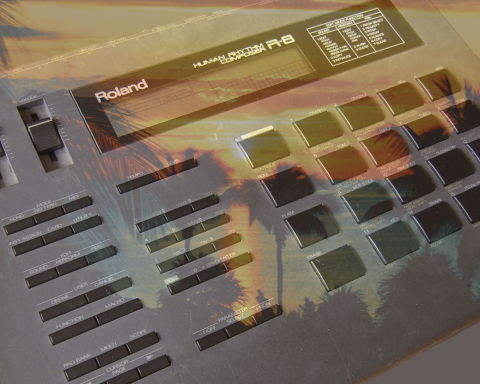Pre-1994, casual listeners considered Nine Inch Nails an “industrial, “industrial-rock,” or “industrial-metal” act. By contrast, “Closer” is a pop song. Like all great pop songs, it’s built around the perfect beat. In truth, much of NIN’s catalog contains such earworms.
A Controversial Chorus
In couples and family therapy, there is the concept of “I-statements.” They’re simple expressions in the first person. They directly convey feelings and needs and allow speakers to express themselves straightforwardly. I-statements encourage listeners to accept without judgment.
The chorus of NIN’s “Closer” is nothing if not an I-statement.
It is the indelible hook of the standout single from Nine Inch Nails’ most esteemed album, 1994’s The Downward Spiral. TR-606 beat and memorable video notwithstanding, the controversial line remains the track’s calling card.
"Like gold joinery in Japanese Kintsugi pottery, the negative space preserves the form."
The Skeleton Key
The forceful lyric is the skeleton key to the song’s appeal. While the actual words are too naughty to speak aloud on the radio, they also propelled “Closer” to unlikely chart success. The song reached #41 on the Billboard Top 100 and remains among NIN’s most popular.
Remove the offending word from the chorus and its absence still completes the lyric. Bleep it out and the “I-statement” retains its shocking power. Like gold joinery in Japanese Kintsugi pottery, the negative space preserves the form.

Heartbeats and a Frankenstein Groove
Later in his career, Trent Reznor released a track entitled “Love is Not Enough.” Neither is self-destructive lasciviousness. “Closer” channels Trent Reznor’s libidinous desires through immaculate sonic machinery. Indeed, the heart-turned-steam-valve in the song’s video is the perfect visual metaphor for the song.
Reznor Frankensteined the groove from several elements. They include a Roland kick from Iggy Pop’s “Nightclubbing,” a performance by drummer Chris Vrenna, and custom hi-hats from producer Flood. The combined effect is akin to white noise. Moreover, the drum pattern sounds like a lurid fantasy.
"'Closer' channels Trent Reznor’s desires through immaculate sonic machinery."
Unrepentant Self-Loathing
“Closer” is unrepentant in its lustiness, yet that’s what makes it relatable. Reznor says the track is more about self-loathing. Without question, it’s about that, but the artist has a penchant for these types of numbers. (See: “Sin” and “Discipline.”) Nevertheless, “Closer” is Reznor at his most desirous. It’s perfect for young, rebellious teenagers, people who have likely never acted on the themes in the song.

Teenage Rebellion
I was one such teenager. After a day at the local amusement park, I recall making out in the back seat with “Closer” on the radio. After almost two decades, the memory remains fresh, though there are entire relationships since I hardly recall.
Much to the chagrin of parents everywhere, pop culture has a long history of songs about young lust. From “Tutti Frutti” to “WAP,” these songs have power. They tap into urges society represses.
“Closer” takes the ethos to an edgier degree. In fact, “Closer” is part of a constellation of influences that changed the way I think of carnal desire. It did the same for many people. If our “whole existence is flawed,” Reznor lets us revel in the experience.







